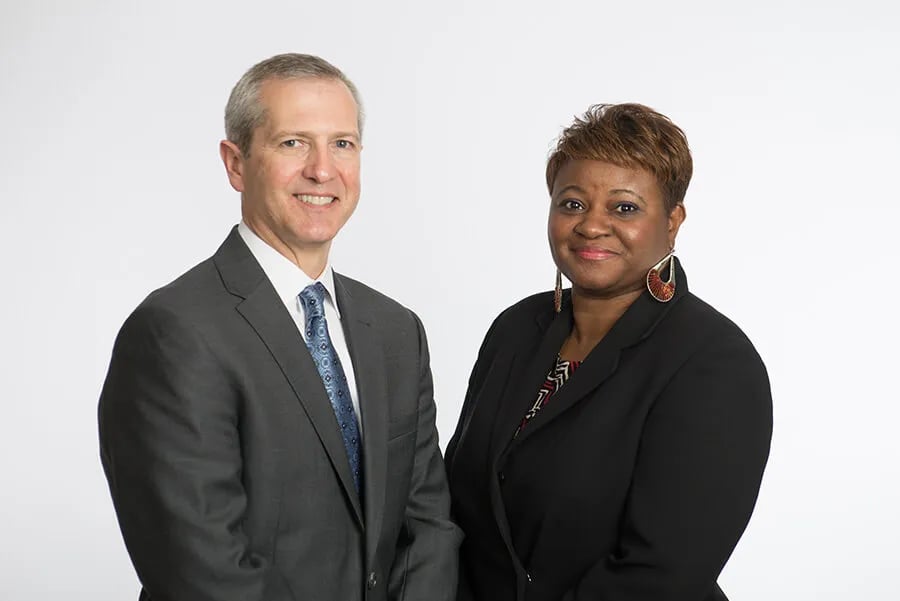Employer liability in Georgia, and in multiple states across the nation, is in a state of flux. Traditionally, employer liability has been based on the legal doctrine of ‘Respondeat Superior’, which in general, holds employers liable for an employee’s actions when the employee is acting within the scope of their work responsibilities.
Infographics
Scroll down to our Georgia Employer Liability Expansion infographic:
In recent years, though, a new law in Georgia has challenged the precedent and it’s been overturned!
What could that mean for future employer liability claims in Georgia? Get all the details about what’s changing and how it could impact future cases below.
Employer Liability in Georgia: The Basics
Before you understand how employer liability in Georgia is changing, it’s important to define a few key terms. Here are some definitions to keep in mind:
• Respondeat Superior: a legal doctrine that holds the employer responsible for the wrongful acts of an employee if those acts occurred within the reasonable scope of employment
• Reasonable scope of employment: the range of activities that an employee is expected to perform as part of their job
• Employer liability: an employer’s legal responsibility
• Financial liability: legal responsibility for financial losses
• Negligent hiring: when an employer fails to fully check an individual’s background before hiring them
Below, we’ll go over the prior Respondeat Superior doctrine, the new law, what’s changing, the consequences of the new precedent, and a whole lot more.
The Prior Law on the Respondeat Superior Liability of the Employer
As defined above, respondeat superior liability is a legal rule that assigns financial liability to an employer when an employee was acting within the reasonable scope of their employment and harm resulted from that action. This important legal rule was first officially adopted by courtrooms in Georgia in 1967 during the landmark case Willis v. Hill.
In a nutshell, this rule helped streamline civil lawsuits regarding employee and employer liability in Georgia because fault would automatically get attributed to the employer so long as the employee passed the reasonable scope of employment test. There would be no need to pursue an additional claim that the employer was negligent in hiring, training, or retaining the employee. Rather, the liability would automatically be assigned.
Are you feeling a bit confused? Let’s break it down with an example. Imagine that a trucking company hires a driver to deliver products across multiple states without doing a proper background check on the person. Later, the driver ends up getting into a severe crash after being caught drinking while driving on the job. It’s later revealed that the individual had prior DUIs on his record before getting hired by the trucking company. As a result of the employer’s negligent hiring practices, they’ll be held fully legally and financially liable for the truck driver’s wrongful actions under the Respondeat Superior rule.
This previous rule was beneficial for both sides. For employers, the Respondeat Superior rule meant that the company wouldn’t be subject to long, drawn-out litigation regarding their hiring, training, retention, or supervision practices. A public trial regarding these issues could be devastating to the company’s overall image and brand. All evidence regarding negligence on the employer’s part wouldn’t be part of the trial, which means it wouldn’t become public, because it would be considered irrelevant to the overall claim.
The plaintiff, on the other hand, benefited from this rule because they didn’t have the additional burden of proving the employer’s negligence or that the employee was acting within their scope of employment. Rather, the rule gave the company an incentive to simply admit the relationship existed and that the employee was acting within the scope of their responsibilities.
The “New” Law and the End of the Precedent
While this precedent has remained for decades, the end came in November of 2020 after Georgia’s Supreme Court abrogated the Rule in a new landmark case Quynn v. Hulsey. So, why was this decade’s old precedent reversed?
According to the Supreme Court, it all comes down to a recently adopted statute, OCGA § 51-12-33. This new Georgia law states that the jury must assign percentages of fault for damages when an action is brought against more than one person for an injury once liability has been established. In other words, it would go against this new statute to automatically attribute fault to the employer in situations where the employee might be held accountable by the jury.
In a nutshell, the Respondeat Superior Rule is inconsistent with the new apportionment statute. Sticking with this old precedent would mean denying the jury the ability to assign fault to the employer for negligent hiring and then allocate the rest of the relative fault among other defendants and the plaintiff. This new apportionment statute gives the jury more of an ability to attribute fault because previously one party’s fault was previously being excluded from consideration.
What’s more, Georgia courtrooms operate on a comparative negligence standard. That means a person wouldn’t be able to seek out legal compensation if their own negligence was considered equal to or greater than the combined negligence of the employee and employer combined. Since this previous rule combined those defendants into one “party”, it lessened the chances that the Plaintiff would be considered less at fault than the others.
Underlying Case Facts
In Quynn v. Hulsey, the case that overturned the Respondeat Superior precedent, the plaintiff was seeking a claim against a truck driver and a trucking company. According to court documents, the plaintiff alleged that the truck driver was negligent when driving his truck and caused an accident. Further, the plaintiff alleged that the trucking company was also negligent when hiring, training, supervising, and retaining the truck driver.
In the original case, the trucking company did concede vicarious liability for the truck driver’s negligent actions in the event that they were proven, but they also asserted that the plaintiff was comparatively negligent for the accident as well. The trial court expectedly relied on the Respondeat Superior Rule and granted a summary judgment on punitive damage claims and on negligent hiring claims.
Rather than accepting the judgment, the Plaintiff appealed the decision. During the trial on the claims regarding negligence, a special jury verdict was formed. This special jury was set to decide what percentage of fault each party was responsible for. The jury found that the Plaintiff was 50% at fault, while both the truck driver and the employer were also 50% at fault. According to the comparative negligence standard, the Plaintiff in this case would not be eligible to seek out any compensation. Since the truck driver and employer were considered one “defendant” rather than multiple parties, the Plaintiff was not able to seek damages. As a result, the court ruled in favor of the defendant.
As expected, the Plaintiff appealed that decision, which brought the case to Georgia’s Supreme Court.
Reasons for the Supreme Court’s Decision
Once this issue reached the Supreme Court, the lower court’s summary judgment on negligent hiring from the employer was once against reversed. The Supreme Court decided that the former Respondeat Superior Rule shouldn’t apply and should not be considered valid considering the apportionment statute.
The Supreme Court’s decision is based on the apportionment statute’s requirement that the jury needs to consider the percentage of fault according to each party. The former precedent did not give room for the jury to attribute fault appropriately.
What’s more, the Supreme Court also held that the evidence needed to prove negligence claims against an employee is completely different than the evidence needed to prove negligent hiring claims against an employer. The Supreme Court ruled that these are two separate torts. While an employer might be held liable for an employee’s negligence, the Supreme Court further reasoned that the employee would never be held liable for any fault attributed to the employer.
Consequences of the Abolition of the Respondeat Superior Rule
So, what will the consequences of getting rid of the Respondeat Superior Rule be moving forward? It may take some more time to find out, but there’s a good chance that we can expect more litigation regarding the acts of employers in these types of cases. More time, effort, and money will be spent attempting to defend/pursue a claim against the employer’s actions.
It also remains to be seen whether the switch will have any impact on verdict settlement amounts or how juries will attribute fault to each relative party. When it comes to verdict settlements, there have been recent updates. The Georgia Supreme Court ruled in Alston & Bird v. Hatcher Management Holdings that the new apportionment statute does not allow for the reduction of damages for the non-fault party when a case involves only one defendant.
In May of 2022, the Governor of Georgia further clarified the apportionment statute by signing HB 961 into law. This amendment to the statute allows the defendant or defendants, no matter how many there are in a lawsuit, to appoint fault towards all parties.
Trial Issues
Per the new rule, it’s likely that trials will allow evidence of the employer’s negligence when it comes to hiring, training, retaining, entrusting, and supervising employees. What’s more, prior evidence of the plaintiff’s negligence or prior incompetence, which is meant to be evidence of the employer’s negligence, could contribute to a jury’s perception of the employee’s overall level of fault.
Litigation Issues and Claims Handling
Another serious litigation issue would be the potential for a conflict of interest between the employer and employee. Under the previous Respondeat Superior Rule, these two parties were considered one party. Since they’d now be considered separate defendants, it would make sense for both of them to hire their own legal counsel to avoid having a representative that’s attempting to represent both the employer and employee.
Do You Have More Questions About Employer Liability in Georgia?
Are you currently involved in litigation where employer liability in Georgia will come into play? If so, then the recent changes to the law could further complicate your case. Former precedents are no longer enforceable as new laws have created a new way of handling cases where you’ve been injured by a negligent employee or employer.
Considering that legal experts are still attempting to catch up with and understand these changes, there’s a good chance that you have questions about them, too. If you have specific legal questions regarding your potential claim, then the best way to handle it is to get in touch with a qualified lawyer who can help.
The attorneys at our office pride ourselves on keeping up-to-date with all of Georgia Supreme Court’s latest decisions and the potential implications they will have on future litigation. If you have more legal questions or you’re considering seeking out an employer liability claim in Georgia, then we advise you to reach out to our office ASAP. Leave your contact information on our online form now to get in touch.
Infographic




